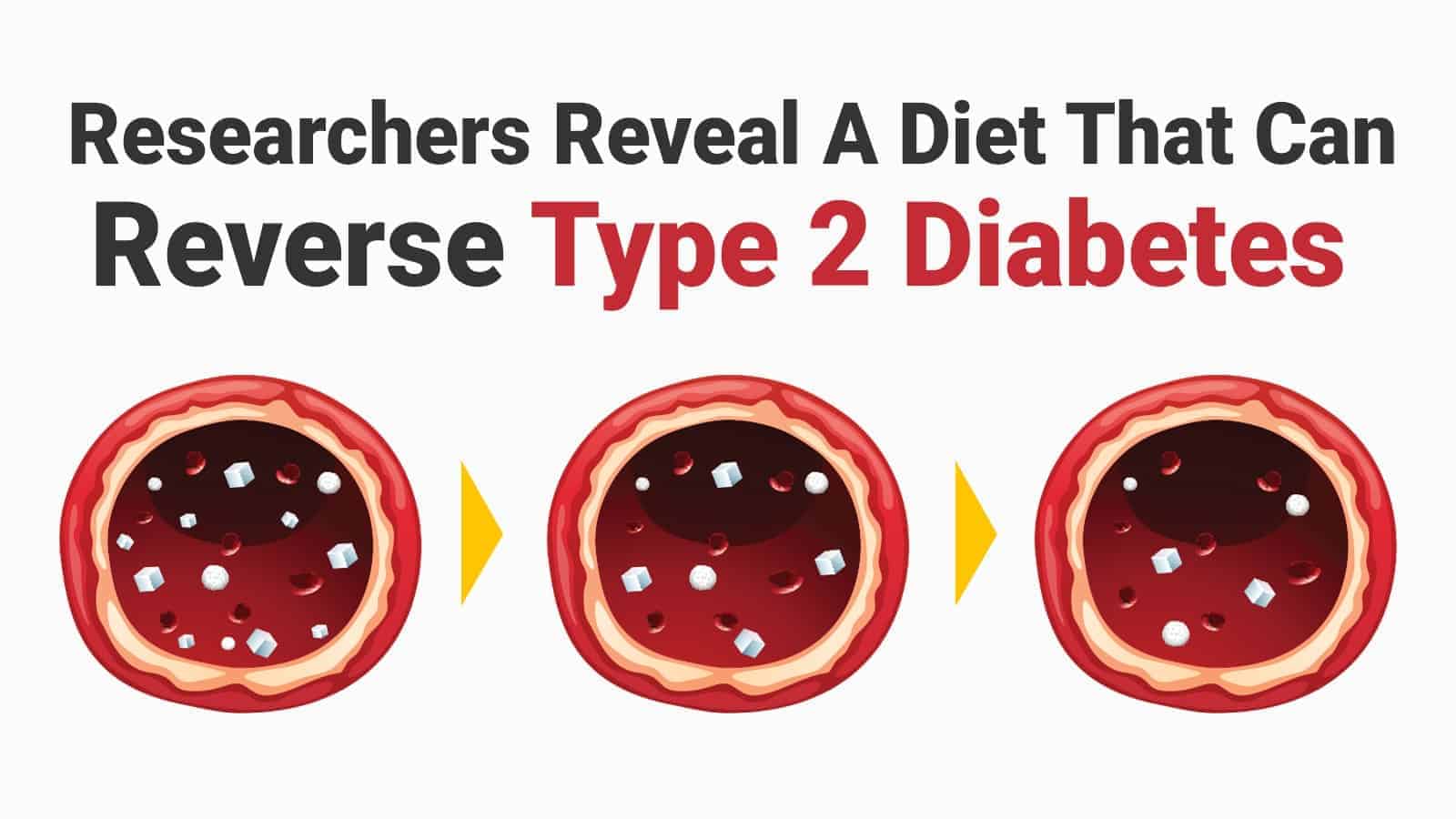According to the CDC (Centers for Disease Control) over 100 million adults in the United States either have diabetes or are pre-diabetic. In fact, as of 2015, over 9 percent of the country’s population was diagnosed with type 1 or type 2 diabetes. While type 1 diabetes is genetic, there is a causal relationship between weight and type 2 diabetes, and those who are overweight or obese are more likely to be diagnosed with the disease. To further emphasize this point, since 2015, more than 84 million pre-diabetics were diagnosed with type 2 diabetes. That said, type 2 diabetes is something that is within our control to manage and, in many cases, it can also be reversed through exercise and a healthy diet. In this article, we detail a few diabetic-friendly diets that can help you manage your diabetes and also maintain a healthy weight.
WHAT IS TYPE 2 DIABETES?
Before identifying the best diets for those diagnosed with type 2 diabetes, let’s take a moment to explain the impact that the disease has on the body. Type 2 diabetes is characterized by the body’s inability to get enough glucose (blood sugar) into the cells that need it. When this occurs, an abundance of blood sugar remains in the bloodstream, which, in turn, results in a variety of possible problems including kidney complications, cardiovascular disease, vision problems, and other maladies. One way to combat the effects of high blood sugar is by consuming low glycemic index foods; these foods consist of oatmeal, lentils, and quinoa, for example. That said, there also foods that can increase blood sugar levels including sugar, white pasta, flour, and pastries, for example. If you’ve been diagnosed with type two diabetes, these foods should be avoided as they can spike your blood sugar.
BEST DIETS FOR THOSE DIAGNOSED WITH TYPE 2 DIABETES
When it comes to reversing type two diabetes, there are two diets that have been endorsed by the American Dietetic Association, the Paleo and Mediterranean diet. Starting with the Paleo diet, this diet is predicated on moderate protein with the main staples of the diet consisting of fish, nuts, eggs, vegetables, and lean meats. In order for this diet to work, dieters will have to avoid some of the foods they enjoy the most like candy, high sodium foods, grains, beer, and dairy products. Although this may seem like extreme deprivation, the diet does work. Studies have shown that those on the Paleo diet feel satiated longer, stabilize their blood sugar levels, and lose weight while following the diet.
The results of the Mediterranean diet were very similar in that dieters reported feeling fuller longer; also, many dieters found that their blood sugar remained stable while following the diet. So what does a Mediterranean diet consist of, you ask? Well, you can expect to consume a lot of vegetables, fruits, fish, and healthy fat like those found in avocados and nuts. The Mediterranean diet is one that is considered nutrient-dense, which enables dieters to get their daily intake of vitamins and minerals. Much like the Paleo diet, those following the Mediterranean diet also benefited from satiation, stable blood sugar, and weight loss while following the diet.
ADA DIET FOR DIABETICS
Although not quite as popular as the Paleo and Mediterranean diet, the ADA diet is one that is specifically aimed at those diagnosed with type two diabetes and looking to lose weight. It’s important to note that this diet shares several parallels with the Paleo and Mediterranean diets. For example, the ADA diet emphasizes consuming low glycemic index foods while avoiding simple carbohydrates and replacing saturated fats with healthy fats. It is probably obvious why you should limit or avoid saturated fats, but why should you avoid simple carbohydrates? Well, in addition to being a poor choice for your type 2 diabetes diet, the foods characterized as simple carbohydrates can raise your blood sugar quickly, which, in turn, can place your health in jeopardy.
WHAT YOU SHOULD KNOW ABOUT DIETING WITH DIABETES
There is no ideal diet for those with diabetes looking to lose weight, meaning there are multiple diets that can help you achieve your weight loss goals. As long as you’re cognizant of the types of foods you’re consuming, you are free to choose a diet that fits your lifestyle. After all, if dieting doesn’t feel like a chore, you’re more likely to stick with it, which means you’re in a better position to reverse your type two diabetes. The biggest take away when it comes to diet and diabetes is to be more aware of your carbohydrate intake. Why is this so important? Well, carbs that are not used for energy will be converted into sugars, which can spike insulin levels.
TOP DIABETES SUPERFOODS YOU SHOULD KNOW ABOUT
Regardless of which diet you opt to go with, making superfoods a part of your meal plans can benefit you on your journey towards a healthier, trimmer version of yourself. These foods include
- Wild salmon
- Cinnamon
- White balsamic vinegar
- Chia seeds
- Lentils
Now that we have identified 5 superfoods worth adding to your health and weight loss goals, let’s take a moment to detail the benefit of each of them:
Wild salmon contains omega-3 fatty acids that act as an anti-inflammatory. Also, omega-3 fatty acids have been shown to prevent heart disease, lower blood pressure, and limit plaque build-up in arteries.
Cinnamon has been shown to lower serum glucose in those with type two diabetes, and because the spice contains polyphenol, it can also prevent certain heart problems.
White balsamic vinegar can down gastric emptying, which, in turn, helps slows down how quickly glucose (blood sugar) is released into your bloodstream. As such, insulin response remains steady, allowing you to avoid the unpleasant symptoms of high blood sugar like dry mouth, nausea, and fatigue, for example.
Chia seeds are a great source of protein, fiber, and omega-3 fatty acids, making it a must-have superfood. One of the best things about chia seed is its natural ability to lower the glycemic load of most foods, which means you’re left feeling satiated for a longer period of time. Also, chia seeds can help keep blood sugar levels stable and, best of all, the seeds don’t alter the natural taste of foods. So consider making them part of your type 2 diabetes diet.
Lentils contain B vitamins and iron along with fiber and protein, which provides the body with needed nutrients and allows you to feel fuller longer, meaning you eat and thereby lose more weight.
FATS AND PROTEINS ON A TYPE 2 DIABETES DIET
When it comes to weight loss, fat and protein will always play a pivotal role in determining whether you succeed or fail on your diet. Although fat is not directly linked to blood sugar, too much can increase your risk of cardiovascular disease, not to mention what it can do to your waistline. With regard to “good fats,” consider adding yogurts and other fermented dairy products to your diet along with whole eggs and dark chocolate, for example. As far as “bad fats” are concerned, you would be best served in avoiding animal fats, which are commonly found in bacon, hamburgers, and similar foods. As far as protein is concerned, this macronutrient can provide you with enough energy to get you through your day, provided you choose the right protein sources. Consider adding the following protein-packed foods to your type 2 diabetes diet:
- Legumes
- Peas
- Tofu
- Chicken and turkey
- Fish
- Dairy products
ALCOHOL AND WEIGHT LOSS
If you’re committed to losing weight and reversing your type two diabetes, you should avoid alcohol not only for health reasons but also because it will cause you to gain weight as opposed to losing it. Alcohol has been proven to lower blood sugar in those diagnosed with type two diabetes and, in server cases, can lead to hypoglycemia. The best way to avoid finding yourself in this predicament is to consume alcohol with food and to avoid mixed drinks as they typically contain a lot of sugar.
In summation, the best diet to lose weight and potentially reverse type two diabetes is one that limits carbohydrates and places a greater emphasis on vegetables and healthy fats. How well you succeed on your diet will be determined by your level of commitment along with your desire to improve your health. If you are having trouble choosing the right diet, you’re encouraged to work with a dietician or a nutritionist who can recommend a diet plan based on your unique needs.
https://www.youtube.com/watch?v=yG-G9_LOkLA


















